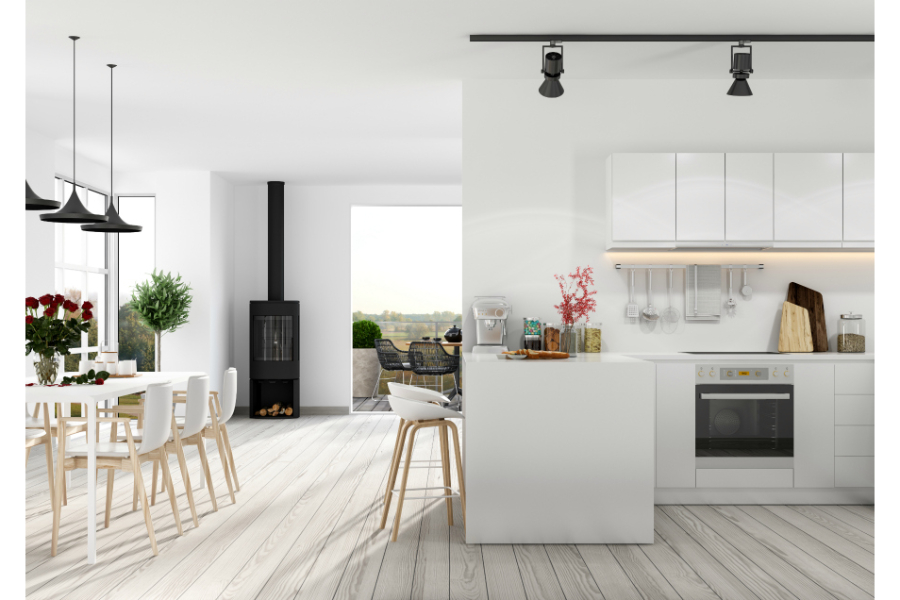The mobile home sector has received a growing interest from both investors and residents alike. With the coronavirus continuing to affect several industries leading to even worse housing efforts, more people are considering going for mobile homes instead as an alternative fix.
Mobile homes, also known as manufactured or trailer homes, are almost the same as traditional family homes. They are just as sturdy, with manufacturers following strict HUD regulations in building them to ensure their quality can withstand several environmental factors. The main difference between a mobile and a traditional home is that with the former, the homeowner can choose exactly where he (or she) wants his (or her) home located at all times. Fancy a mountain view for this month? Done deal. Feeling a little lake vibe? No problem, we can take the mobile house lakeside. The extra freedom on where you want to live is an attractive feature for people who don’t like the permanent feeling of buying a house fixed in one place.
Despite the growing success of the mobile home sector, a lot of people are still wary of mobile houses. There are a lot of floating rumors and misconceptions about mobile homes that keep people from investing 100% into the idea. Here are some of the most common myths that people have about manufactured houses:
Mobile homes are built with below-standard quality.
This is one of the silliest myths running around about mobile houses, but unfortunately, many people seem to believe this. In reality, mobile homes go through a stricter manufacturing process than traditional homes. First, the HUD has a detailed Manufactured Home Construction and Safety Standards code that every mobile homemaker needs to follow by the letter. The construction involved in a mobile home is just as meticulous, if not more, as a standard residential house.
Since mobile homes have the capability to be moved from one place to another, they need to be more resistant to environmental effects so that the mobility part can be preserved. As a result, additional measures are taken to increase durability by going for high-quality building materials. The mobile houses should also be able to withstand transportation woes so that their mobile nature can last as long as possible.
Mobile homes are difficult to finance.
Another popular misconception about mobile homes is that they are hard to finance. A couple of decades ago, there was actually some truth in this statement, as many mortgage institutions and private lenders weren’t ready to support the manufactured home industry yet. Securing a loan for a mobile home then was challenging, and even if you found a willing lender, the mortgage rates weren’t as friendly as a regular house’s.
However, times have changed a lot since then. In the past decade alone, private and government-sponsored financial institutions have significantly ramped up financing efforts for mobile homes. The progress is so impressive that financing a mobile home is just as easy as you would a traditional family home.
The Federal National Mortgage Association, commonly referred to as Fannie Mae, managed to close around $2.5 billion in loans for mobile homes in 2019 alone. This isn’t something new for the industry, as 2018 saw their numbers reach $2.9 billion, a significant increase from 2017’s $1.9 billion deals. More and more people are getting financing for mobile homes, which only shows you how laughable these myths are right now.
Mobile homes are a bad investment, or at least not as good as a standard house.
Many people have the notion that mobile homes depreciate faster than standard houses. The type of housing isn’t that relevant when judging potential depreciation values. It all boils down to how well you take care of your property. If you don’t do a good job at maintaining and taking care of your house, regardless if it’s a mobile home or a standard house, it will lose value due to damages suffered over time. Given that mobile homes go through a more challenging manufacturing process, it’s a fact that they are generally sturdier than traditional homes, which would last them longer in terms of wear and tear.
Houses also tend to depreciate depending on the location. Oftentimes, the community affects how residential areas are valued altogether. For instance, a sketchy neighborhood can drive down house prices due to potential safety hazards for interested occupants. Mobile homes have a workaround for this because homeowners can move to a different community if necessary.
The coronavirus pandemic has only proved how resilient mobile houses are. There has been an increased demand for mobile homes due to more people looking to secure affordable housing in these trying times. The mobile home industry has received a drastic increase in investments this year, staggering to a 23% increase in the second quarter alone.
It is important to secure a residence in these uncertain times, and affordable options such as mobile homes surely won’t hurt. Although you can get mobile homes at a lower cost, you can be sure that quality is not an issue and that you’ll be able to enjoy all the benefits a standard house offers, and more.
Meta title: Top Misconceptions About the Mobile Home Industry
Meta desc: Mobile homes increase in sales every year. However, a lot of misconceptions regarding the industry still float around. Learn more about them.








